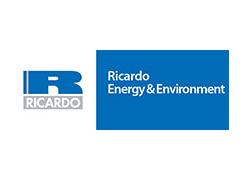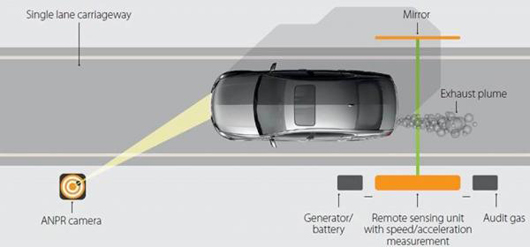‘Real-world’ vehicle emissions monitoring service linked to automatic number plate recognition by Ricardo

Vehicle emissions are the primary cause of air quality standard excesses in the majority of UK Air Quality Management Areas. Increasing pressure to reduce the impact of pollution from vehicles has led to growing interest in the introduction of ‘Clean Air Zones’ and ‘Low Emission Zones’.
However, such mitigation measures are expensive to design and implement and, while street level air quality monitoring can highlight the problem in the form of the local hot spots at which exceedances occur, it does not provide information on which of the passing vehicles are the most polluting.
Marking a significant step forward in the measurement of emissions from vehicles on UK roads, Ricardo Energy & Environment, working with technology partner OPUS Inspection, has launched a real-world vehicle emissions monitoring service.

Vehicle monitoring system
Installed at locations of interest, the measurement system instantaneously records in a completely non-intrusive manner, the real-world driving emissions – of nitric oxide, nitrogen dioxide, particulate matter, hydrocarbons, carbon monoxide and ammonia – from each passing vehicle.
The data recorded can be used to identify the most polluting vehicle types (i.e. buses, heavy goods vehicles, vans and cars) and their respective contributions to emissions. Significant improvements are thus possible in the accuracy of modelling and simulation efforts underpinning the design of Clean Air Zones, reducing uncertainty by replacing assumptions with evidence-based, real-world driving emissions information.
Moreover, once such zones have been implemented, the system can be used to support enforcement management through the identification of non-compliant vehicles.

Air quality vehicle emissions monitoring
“Ricardo’s new vehicle emission measurement service is a major step forward in the measurement of real-world vehicle emissions in the UK, helping our clients to improve the design, enforceability and overall effectiveness of Clean Air and Low Emissions Zones” explained Sean Christiansen, Ricardo Energy & Environment air quality practice director.
“The capability that this new system gives us complements the extensive air quality capabilities that Ricardo offers, ranging from support and advice on pollution control policies, pollution modelling and measurements, inventory design and compilation and the development of low emission strategies.”
Comment on this article below or via Twitter @IoTGN
